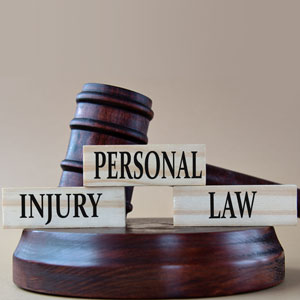Call Now To Learn More About Your Legal Rights
(479) 227-3060(Calls Answered 24/7) OR Text Us:
(479) 358-1998
This guide covers the following:
Most medical records are set up in SOAP format, which stands for Subjective, Objective, Analysis, and Plan. You go in and tell the doctor what hurts. That’s subjective; they do an exam, the objective, analyze that, and then come up with a plan.
Those records are the backbone of what we’re going to use to present your pain and suffering claim and get your bills paid if you’re off work. So, medical records are foundational when presenting your claim.
It’s not only your attorney that looks at your medical records. Insurance adjusters also use the same information to assess your case.
They look to see exactly what you said:
Using the medical records, the adjuster can track the foundation that was built at the beginning of your subjective complaints, those that were confirmed objectively by the doctor and also those that did not improve.
If you’re referred out for additional specialists, then those initial medical records help to paint a picture of something that you complained of subjectively from the accident. Going forward, it helps relate any kind of future medical to the initial medical in your claim.
The majority of personal injury cases are settled in negotiations. However, some cases go to trial. At this point, a doctor testifies in court about his or her records, which are then blown up on a screen for the jury to see.
As much information as possible must be provided when the doctor takes the stand. The more information that is presented, the easier it is for the jury to understand vital details such as:
All of that information will be on the screen, and a jury will be able to see it and really understand what you went through during your recovery.
One reason we always refer people back to their treating physician is that the physician will document the injuries and also be the professional who will discuss their medical condition in court.
Any and all documentation from a healthcare provider is vital. No matter how many providers you see, your attorney should get all your bills and records.
However, the jury will want to see that you were evaluated for your initial injuries. They want to see that you actively participated consistently in a treatment plan and were active in your own recovery. They will want to see a doctor evaluate you and recognize that you were compliant with your treatment plan.
The jury will also want to see that you followed all recommendations from your doctor if you were referred out for any kind of additional diagnostic or specialist care. Simply put, any medical evidence is crucial in your personal injury case.
While medical records play a significant part in proving your injuries, they can also sabotage the case if the records are not accurate and have inconsistencies. However, we have a role in ensuring the records are accurate.
We start by ensuring we have the whole record. For example, you may have gone to a provider before and requested bills and records, but weren’t given everything. So, we try to keep an open line of communication with the medical provider you’re seeing to make sure we have the full picture.
If there are discrepancies, we’ll pick up the phone and talk to your doctor’s office. If something is unclear and not fully documented, we’ll ask for more information. We’ve had doctors write reports expounding upon their records if their initial reports are more bare-bones than a jury or an insurance adjuster would like to see.
It all comes down to keeping an open line of communication with the people who are taking care of our clients.
Doctors are also humans and are prone to make mistakes. What’s important is how we rectify the mistakes and ensure we provide accurate medical records and documentation.
First, we’ll discuss the gap with you to see if you had any issues that might have happened during that time. If something came up or life got in the way, and there’s an explanation of why you weren’t compliant with treatment at the time, we consider that.
If you stayed in contact with your doctor, letting them know that you could not make those appointments, and rescheduled and made every attempt to get back into the treatment plan, that would be even better.
By talking with you, we ensure that we understand your issues and help bridge them. If there is a gap in treatment that we can help address between the provider and yourself, we can also intervene. Usually, we find a reasonable explanation for the gap and ensure that we can do everything possible to get you back on your treatment plan.
For more information on How Medical Records Prove Damages In Arkansas Personal Injury Cases, an initial consultation is your next best step. Get the information and legal answers you are seeking by calling (479) 227-3060 today.